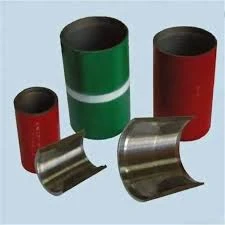- Afrikaans
- Albanian
- Amharic
- Arabic
- Armenian
- Azerbaijani
- Basque
- Belarusian
- Bengali
- Bosnian
- Bulgarian
- Catalan
- Cebuano
- Corsican
- Croatian
- Czech
- Danish
- Dutch
- English
- Esperanto
- Estonian
- Finnish
- French
- Frisian
- Galician
- Georgian
- German
- Greek
- Gujarati
- Haitian Creole
- hausa
- hawaiian
- Hebrew
- Hindi
- Miao
- Hungarian
- Icelandic
- igbo
- Indonesian
- irish
- Italian
- Japanese
- Javanese
- Kannada
- kazakh
- Khmer
- Rwandese
- Korean
- Kurdish
- Kyrgyz
- Lao
- Latin
- Latvian
- Lithuanian
- Luxembourgish
- Macedonian
- Malgashi
- Malay
- Malayalam
- Maltese
- Maori
- Marathi
- Mongolian
- Myanmar
- Nepali
- Norwegian
- Norwegian
- Occitan
- Pashto
- Persian
- Polish
- Portuguese
- Punjabi
- Romanian
- Russian
- Samoan
- Scottish Gaelic
- Serbian
- Sesotho
- Shona
- Sindhi
- Sinhala
- Slovak
- Slovenian
- Somali
- Spanish
- Sundanese
- Swahili
- Swedish
- Tagalog
- Tajik
- Tamil
- Tatar
- Telugu
- Thai
- Turkish
- Turkmen
- Ukrainian
- Urdu
- Uighur
- Uzbek
- Vietnamese
- Welsh
- Bantu
- Yiddish
- Yoruba
- Zulu
Extending Well Casing with Innovative Coupling Solutions for Enhanced Performance and Durability
Understanding Well Casing Extension Couplings in Oil and Gas Operations
In the oil and gas industry, the well casing is a crucial component that serves as a barrier to protect the wellbore from external contamination and ensure the structural integrity of the well throughout its life. As drilling operations progress deeper into the earth, it is often necessary to extend the existing casing to accommodate deeper formations. This process involves the use of well casing extension couplings, a critical tool that enables seamless integration of additional casing sections.
What are Well Casing Extension Couplings?
Well casing extension couplings are specialized devices designed to connect two sections of casing, extending the length of the casing string. These couplings are typically manufactured from high-strength steel to withstand the extreme conditions encountered during drilling operations, including high pressures, temperatures, and corrosive environments.
The primary function of these couplings is to provide a reliable mechanical connection that maintains the integrity of the wellbore. They are essential for ensuring that the extended casing can support the pressures exerted by the surrounding geology and the fluids within the well.
Types of Well Casing Extension Couplings
There are several types of well casing extension couplings, each designed for specific applications and casing sizes. The most common types include
1. Screwed Couplings These couplings use threaded ends that allow for easy connection and disconnection of casing sections. They are ideal for situations where flexibility and adaptability are required.
2. Welded Couplings These couplings involve welding two casing sections together, creating a permanent bond. This method is often used in high-pressure applications where a robust connection is necessary.
3. Slip-On Couplings Designed for quick installation, slip-on couplings simply slide over the end of one casing section and are fastened with bolts or other securing mechanisms. While they offer convenience, they may not provide the same level of strength as welded or screwed couplings.
The Importance of Quality in Coupling Manufacturing
well casing extension coupling

The quality of well casing extension couplings plays a vital role in the success of drilling operations
. Couplings must meet stringent industry standards to ensure safety and reliability. Factors such as material strength, resistance to corrosion, and resistance to fatigue are critical when selecting couplings for specific well conditions.Moreover, proper testing and certification of couplings are essential to minimize the risk of failure during operations. Both non-destructive testing (NDT) and load testing can be employed to verify the integrity of these components before they are put into use.
Challenges in Well Casing Extensions
While well casing extension couplings are an integral part of extended drilling operations, there are challenges associated with their use. One significant challenge is the potential for misalignment during installation, which can lead to stress concentrations and potential failure of the joint under operational loads. Proper alignment techniques and the use of specialized equipment can mitigate these risks.
Another challenge arises when dealing with older wells that may have experienced structural degradation. Assessing the condition of existing casing and ensuring that extension couplings can be safely integrated requires careful planning and execution.
Future Developments and Innovations
The oil and gas industry is continuously evolving, with new technologies and materials being integrated into drilling operations. Innovations in coupling design, such as the use of advanced composites or enhanced coating techniques, may lead to stronger, more corrosion-resistant couplings that can extend the life of well casings even further.
Furthermore, the growing focus on environmental sustainability and the reduction of carbon footprints may influence the design and manufacturing of well casing extension couplings. Companies may invest in eco-friendly materials and manufacturing processes to meet regulatory demands and public expectations.
Conclusion
Well casing extension couplings play a critical role in the oil and gas industry, enabling operators to efficiently extend their well casings and maintain the structural integrity of their drilling operations. Understanding the various types of couplings, the importance of quality manufacturing, and the associated challenges can help ensure successful drilling activities. As the industry continues to evolve, so too will the innovations that support the effective use of these essential components, leading to safer and more efficient exploration and extraction processes.
-
Tubing Pup Joints: Essential Components for Oil and Gas OperationsNewsJul.10,2025
-
Pup Joints: Essential Components for Reliable Drilling OperationsNewsJul.10,2025
-
Pipe Couplings: Connecting Your World EfficientlyNewsJul.10,2025
-
Mastering Oilfield Operations with Quality Tubing and CasingNewsJul.10,2025
-
High-Quality Casing Couplings for Every NeedNewsJul.10,2025
-
Boost Your Drilling Efficiency with Premium Crossover Tools & Seating NipplesNewsJul.10,2025







